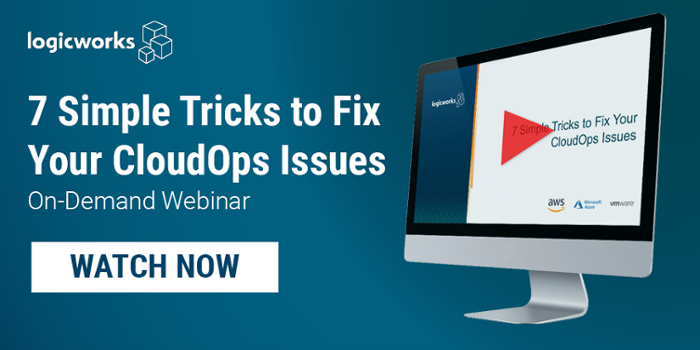Our engineers are the heart and soul of Logicworks. As we continue to grow, maintaining a culture that nurtures the best cloud and systems talent is our #1 goal. This week, we sat down with a Network Operations Center (NOC) Manager, Joanna Rios, to talk about what it’s like to be an engineer at Logicworks. We hope this provides some helpful information for engineers that are interested in joining our team, or greater insight for companies that want to learn more about our unique support model.
Want to join our NOC team? We’re hiring!
Can you describe what a Network Operations Center is, for those not familiar with the term?
A Network Operations Center (or NOC, pronounced “knock”) is an engineering team that provides remote monitoring and management services, either for a telecommunications network, a data center, or another complex system that requires high availability and security 24x7x365. In real terms, it is usually multiple tiers of engineers sitting together in the same room with a video wall showing alerts and events happening across multiple data center sites, responding to events in real time.
At Logicworks, we provide 24x7x365 NOC support and many other services for hundreds of companies around the world. We also provide other engineering services, including the design and build of public and private cloud environments, security services, compliance services, database services, and a lot more.
You mentioned that a NOC team is often focused on network performance and datacenter management. Why is a NOC necessary in the age of cloud?
Whether you are running mission-critical applications in a datacenter or on “rented infrastructure” like Amazon Web Services or Azure, you need support and security monitoring to ensure that your infrastructure is available and secure 24×7. In fact, a majority of Logicworks’ clients run on Amazon Web Services, with the remainder on VMware-based Private Cloud.
Some companies assume that a platform like Amazon Web Services or Azure “runs itself” or that Amazon is responsible for maintaining network availability and security, not your team. It’s important to understand that while Amazon or Microsoft manages the security “of” the cloud, meaning the security of physical networks and servers, you are responsible for security “in” the cloud. You are responsible for network configurations, OS configurations, security tooling, database security — basically, all of things that you are responsible for in any rented datacenter. You are responsible for configuring availability and backups. So yes, having a dedicated support and monitoring team is absolutely essential if you are running mission-critical applications.
The only differences between a traditional NOC and a NOC focused on cloud support are the important metrics. In a traditional NOC, utilization metrics (to encompass RAM, disk, CPU metrics), network performance and system failures are key. In a cloud environment, you also add things like Auto Scaling events (or failures), deployment events, automated events and rebuilds, the outcome of automated tests, and many other metrics. With more variables added to a cloud environment, more things can go wrong, and businesses rely on the NOC group to supplement their own internal support teams.
How is Logicworks’ NOC team structured?
Many years ago, we started with one tier system — meaning that every engineer was on the same level and responsible for all clients. As we grew as a company and added to our team, it was nearly impossible to find engineers with all the skill sets required to maintain such a diverse client base. So we decided to create four tiers based on talent and specialization.
At the first level, you’re new to the company and take initial calls with clients. You are able to do a few basic tasks. Then in the 2nd tier, you’ve been with Logicworks for a year or more, and your focus tends to be more on networking, build configurations, and a single type of OS administration while beginning to learn the other. In the 3rd tier, you have an expanded skill set and are trained not just in maintaining Logicworks’ specific tooling, but in building client environments on additional platforms such as AWS and Microsoft Azure. In the fourth and final tier, you have more advanced DevOps skills, meaning in the automation tools like Puppet and AWS CloudFormation that we use to manage client environments. After this point, you move onto the system engineering team or specialty teams (like DBA, networking), where you’re responsible for overseeing the planning and architecting of complex environments.
What are the benefits of this tier system for engineers?
For our engineers, the benefits are huge: not only is there a clear path up the ranks, but they get exposed to so much more in a short period of time than they would anywhere else. They are not limited in what they can touch and not segregated by platform. By the time they’ve been here for two or three years, they have gone from basic skills to broad knowledge of an extremely diverse technology set.
This is why engineers stick with Logicworks for a long time. We have low turnover because people have the freedom to learn and form good relationships with other engineers and clients. Engineers learn faster here because they are not pigeon-holed into just one team or one platform. They understand nuances of the environment and troubleshooting. There’s so much to learn here that people stay – and that’s good for clients.
How does this structure impact Logicworks’ clients?
For our clients, our team structure means they call us and get the same engineer that has dealt with that environment for years — or perhaps even built that environment — on the phone, 24×7. Many of our engineers have grown up with our clients. Because our retention rate is extremely high for a technology company, our clients get access to those same engineers for many years, which means they develop a personal relationship. You’re certainly not just calling into a tech support line, you’re calling the man or woman who knows your environment inside out, and won’t just do what you ask, but will consult with you about the best way to do something.
Here is something that happens all the time: a client will call us asking for a specific change or request, but doesn’t realize what the real ramifications of that request might be. Because we built the environment, we know that the change is not as simple as it first appears. (In some cases, our engineer has worked on that environment for longer than the client’s engineer!) We’ll consult with the client to come up with a better plan, then carry it out.
You mentioned that NOC is sometimes responsible for building out environments. How does this work?
Unlike most cloud consulting or managed services provider, Logicworks doesn’t have a separate “build team”. The same team that builds your environment is the same team that supports it.
The reason this is such an important model is that we never build cookie cutter environments.
Larger managed cloud companies with thousands of employees are forced to build very similar environments for every client so that their support engineers can fix any environment. You get a different engineer answering your ticket every time. At Logicworks, each environment is custom-built for cost efficiency and performance. No two applications are the same, so no two environments are the same — even though every environment follows our best practices. When you call Logicworks, you can get the engineer that built your environment on the phone. Or you reach an engineer that has had many meetings with the build engineer to get full information and documentation.
The bottom line is that clients get a custom environment that’s suited for their best interests, not our best interests.
Logicworks is an enterprise cloud automation and managed services provider with 23 years of experience transforming enterprise IT. Contact us to learn more about our managed cloud solutions.


